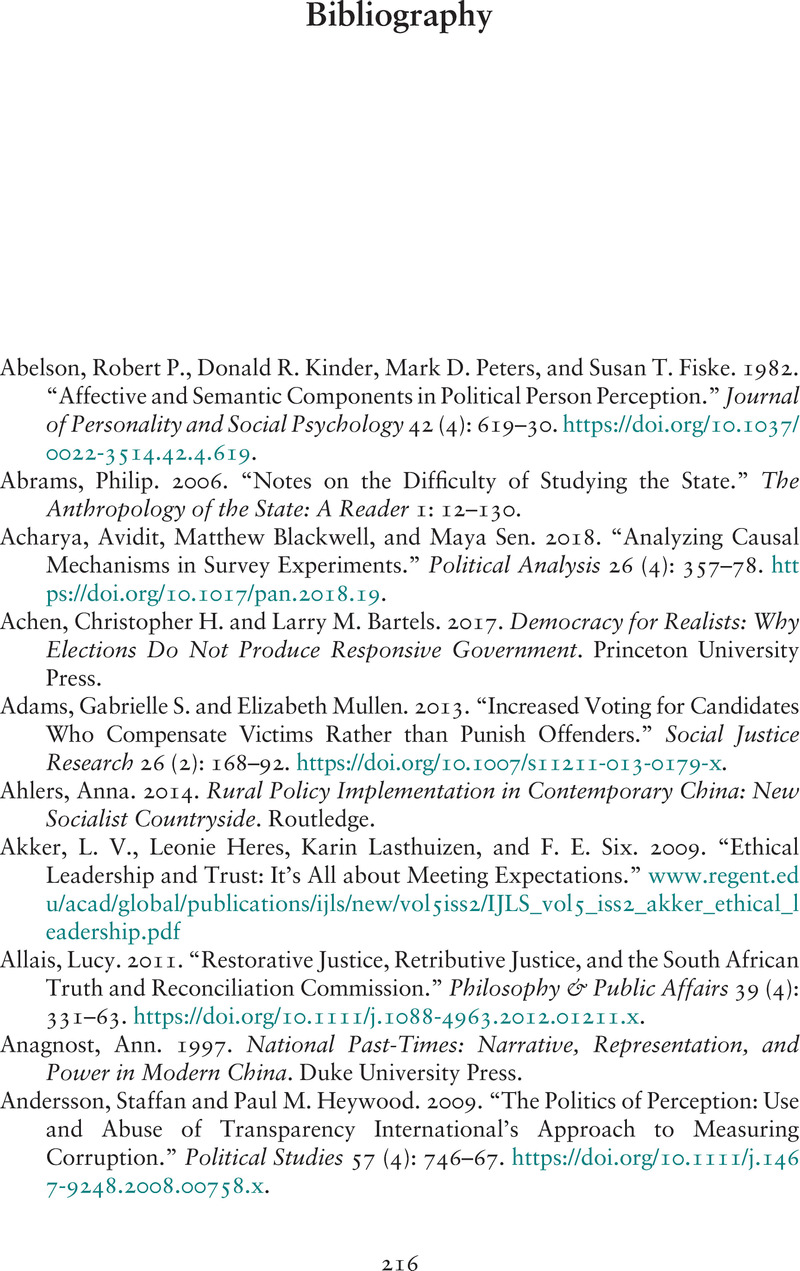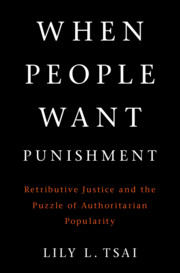Book contents
- When People Want Punishment
- Cambridge Studies in Comparative Politics
- When People Want Punishment
- Copyright page
- Dedication
- Contents
- Figures
- Tables
- Acknowledgments
- 1 The Puzzle of Authoritarian Popularity
- 2 A Retributive Justice Model of Citizen Engagement
- 3 Retributive Justice and State Production of Moral Order
- 4 Evaluating the Impact of Retributive Justice on Citizen Evaluations of Government Authorities in Rural China
- 5 Retributive Justice and Citizen Engagement in Rural China and Beyond
- 6 Democratic Dissatisfaction, Punitive Populism, and the Rise of the “Benevolent” Dictator
- Bibliography
- Index
- Other Books in the Series (continued from page iii)
- References
Bibliography
Published online by Cambridge University Press: 04 August 2021
- When People Want Punishment
- Cambridge Studies in Comparative Politics
- When People Want Punishment
- Copyright page
- Dedication
- Contents
- Figures
- Tables
- Acknowledgments
- 1 The Puzzle of Authoritarian Popularity
- 2 A Retributive Justice Model of Citizen Engagement
- 3 Retributive Justice and State Production of Moral Order
- 4 Evaluating the Impact of Retributive Justice on Citizen Evaluations of Government Authorities in Rural China
- 5 Retributive Justice and Citizen Engagement in Rural China and Beyond
- 6 Democratic Dissatisfaction, Punitive Populism, and the Rise of the “Benevolent” Dictator
- Bibliography
- Index
- Other Books in the Series (continued from page iii)
- References
Summary

- Type
- Chapter
- Information
- When People Want PunishmentRetributive Justice and the Puzzle of Authoritarian Popularity, pp. 216 - 244Publisher: Cambridge University PressPrint publication year: 2021



